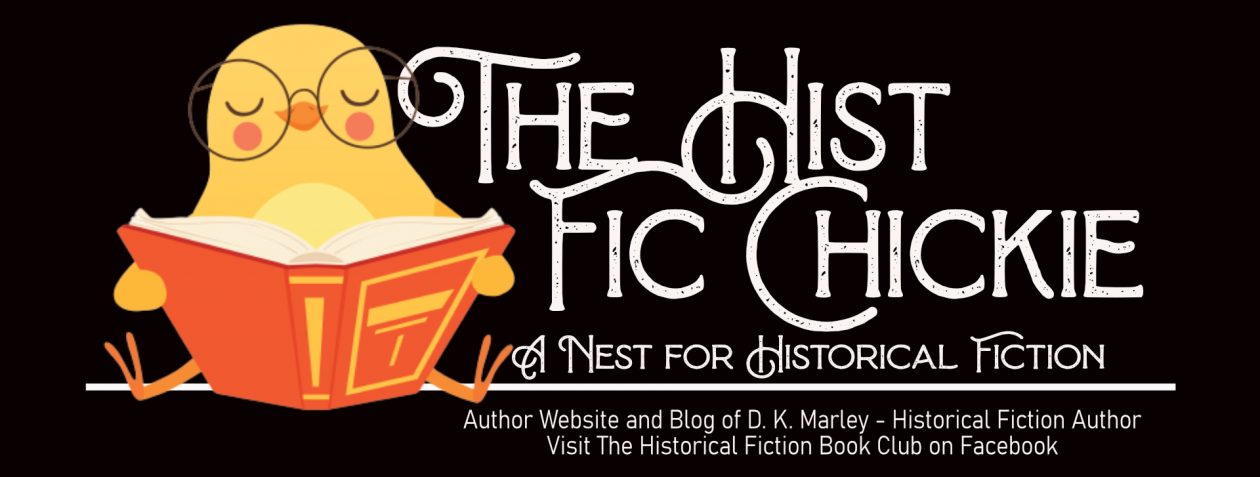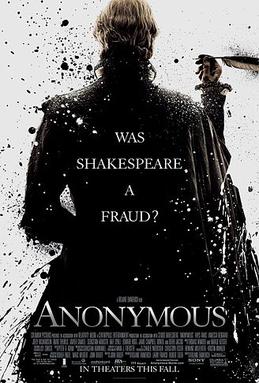Since doing research for my own novel “Blood and Ink”, I have had many people ask me about different aspects in the novel, as to whether or not some of the events actually happened or not. Of course, as I have stated before, I am a fiction writer not a historian; but it is interesting as a writer to take things from the real life and apply them to an imaginary encounter in a novel.
One of the events in my novel is where Shakespeare and his family went to Coventry for a county fair and to see the players perform a “miracle or mystery” play on the stage. Did they really do this and what was Shakespeare’s knowledge of the old drama of the day?
So this post is about the knowledge he had and an excerpt from my novel of a day when he might have visited Coventry.
What were “miracle and mystery” plays? Craig’s The Complete Works of Shakespeare reads “The miracle play, also widely current in England, shows a different variety of religious drama, although mystery plays and miracle plays shade off gradually into each other and are not different in origin. Miracle plays, as distinguished from mystery plays, are those which tell the stories of the lives and miracles of saints and martyrs. English records are preserved in considerable numbers of plays on St. Katherine, St. Laurence, St. Nicholas, and other saints; but the texts of only two or three have been preserved, and they are not representative. To know what when on dramatically in honor of the saints one must study the plays preserved in French. One finds there a variety of saints’ plays as well as the great Miracle de Notre Dame.
There are also the great group of dramatized allegories of varying lengths, known as the morality plays. A number of them, such as The Castle of Perseverance, Mankind, and Everyman, are still in existence. Moralities were less offensive to the taste of the Reformation than were the mystery and miracle plays so that they had a better chance to survive.”
[image error]
Shakespeare knew these plays in their old forms, we know this because of his references, along with a bit of ridicule, to various episodes and characters in them. Herod and Termagant, both characters in mystery plays, appear together in Hamlet. Shakespeare compares Falstaff to the Mannington ox which is a reference to the Mannington fair and possible the morals. Falstaff remarks in contempt about Justice Shallow. Both references in I Henry IV of “that reverend vice, that grey iniquity, that father ruffian, that vanity in years” and “that old white-bearded Satan” recalls knowledge of the morality plays. When Falstaff refers to the flea on Bardolph’s nose as a black soul burning in hell-fire, he may have been referring to the play of the Last Judgment.
Craig’s book also says: “Shakespeare had opportunity to see the old plays, for the Corpus Christi play was performed annually in Coventry, only fourteen miles from Stratford, until he was sixteen years old. It is no extravagant guess that he joined the throng of those who attended the play at the chief city in Warwickshire. In some places in England the Corpus Christi plays continued to be performed until after the beginning of the seventeenth century in spite of the fact that such plays were obviously “blasted with antiquity.” Shakespeare was a child of his time and therefore looked with amusement, if not contempt, on these old-fashioned folk practices.”
Which brings me to my own interpretation of his family’s visit to Coventry. An excerpt from my novel brings the flavor of the day as the Shakespeare family travels on the road toward Coventry for a Mayday fair.
Excerpt from “Blood and Ink” –
The townspeople of Stratford welcomed the drizzly days of May. The ice covering the banks of the Avon melted and laughter came again to the waters beneath Clopton Bridge. William watched the children splashing and playing, jumping from the Roman stone wall holding the bridge in an arch. The wagon he sat upon clacked across the cobblestones, rocking his family from side to side. They were one short on their journey to Coventry this spring, and he looked to the spot where his sister, Anne, would have sat. Little Anne did not make it through the harsh winter and he missed the dimples in her face.
Gilbert nudged William from his dreaming. “I heard Mother say this would be the last year for our trip to Coventry.”
William shrugged his shoulders. “’Tis the same as last year.”
Gilbert scooted closer and lowered his voice. “Nay, ’tis not the same. Father said the council in Coventry has banned the mystery plays. They see it as an old influence of Catholic Mary. You know, watch the plays and scare the common folk to confession.”
“Well, if ’tis banned, then why do we go?”
Gilbert looked to their father whose back was to them as he rallied the horses to Coventry with a click of his tongue. “Father still clings to it, know you this?”
William frowned and pulled his coat closer around his shoulders, still feeling a chill in his bones. Gooseflesh raised on his forearms as he thought of his father’s descent, the meeting with Edmund Campion and the testament he saw his father tuck above a rafter in his workshop three years ago. So much had changed since that talk with his father. Foremost, the capture of Campion. William remembered seeing his father stagger in late from a tavern, his cheeks pale and ashy, but not from too much ale. John slumped in a chair, hanging his head over his hands. Mary and William gathered near to him, sitting on the hearth and urging him to speak. When the words came out, what a tale he relayed.
The lower lid of John’s eyes reddened. “Walsingham arrested Campion, and many others. Edward sent word that his sources at the Tower reported for the past month they subjected Campion to thumbscrews and the clenching jaws of the Scavenger’s Daughter before throwing him into a pit below the White Tower. There is more. Campion crumbled and delivered names to his torturers. After his confession, they dragged him to Tyburn where they burned his innards and quartered him into four parts. His head now sits as food for the ravens atop the ramparts of London Bridge. Edward fears for us all, for the Queen’s wrath will descend upon Warwickshire, headed up by that sinister man, Walsingham. We must learn to suspect strangers in our midst.”
William found it impossible to care about the death of the Jesuit. His thoughts continued dwelling on pursuing his nagging desire for the stage. A day did not pass without his mind tracing over the peculiar dream he had several years earlier in the forest at Park Hall. Yet, his family needed money and, as the eldest, he had to find work. In between tanning hides for his father’s gloving work, setting traps for hares in Charlecote forest, and packing wool in woven bags, he managed a few chances to walk the boards at Burbage’s tavern. The plays usually brief, always staying to the classic lines of Plautus or Seneca, but just enough to keep his blood stirring.
John Shakespeare hid well the cause of his fall from the rest of the family. The thought made William’s skin crawl, for in his father’s demise he brought them all down. His mother turned into a wafting specter, ashy and non-existent, while his siblings bumped about their lives grasping for semblances of their identities, the way for a family of an ambitious man whose star plummets. William squared his shoulders and jaw, setting down a promise in his mind.
I shall never travel that path. When I marry, my family will never suffer from my ambition.
Within the hour, the cart rallied around Wiltshire Wood where the oak tree girths widen and the whispering tales of thieves in the trees fill the air. They topped the hill overlooking a fresh culled wheat field just south of Coventry, green and lush with new growth, and the lilting music of days long past drifted on the wind. Old Celtic ballads plucked upon lutes and lyres, piping and drumming surged through the gathering crowds, beckoning their pagan past. William stood up in the cart and held his hand over his eyes, shielding the spring sun, and scanned the field for the stage. In the distance, past the maypoles adorned with a rainbow of dyed ribbons, two green banners flapped in the breeze embroidered with the arms of the Earl of Leicester. William’s blood raced. He clasped his hands together and laughed, grabbing hold of Gilbert’s shirt.
“Look there, ’tis Leicester’s Men on the stage. If you look for me, there is where I will be.”
William jumped from the cart and sprinted across the emerald field. As he approached, the sights and sounds of players drowned out all notice of the festival. Richard Burbage, William’s longtime friend, saw him from afar and waved to him.
“Will, come join us!”
William touched his hand to the stage, feeling the knots and the grain as he soaked in the sensation pounding within him. He watched the players as they walked around him. They were all there, the statues of his idolatry: William Knell, Tobias Mills, and John Singer, decked in costume. Tarleton, adorned in white face paint and rosy cheeks, sat on the steps tapping upon a tabor. William nodded to him as he rounded the corner of the stage.
Richard came up to his elbow and nudged him. “What say you, Will, shall you join us for a line or two?”
A knot formed in his stomach as he cut his stare to Richard. “What do you mean? To perform with Leicester’s Men? Surely they would not allow it.”
Richard pulled a mask from his cloak. “Who is to know? ‘Tis a masque we perform today. You know Sidney’s masque The Lady of May?”
William huffed. “Know it? Has not every child in Christendom suckled on his works?”
Richard handed him the mask. “Then put this on and we will keep the secret. Master Wilson owes me a favor. I will have you on his mark, so come with me.”
The groundlings gathered before the stage and roared at the clown Tarleton’s prologue, his comic ambles full of religious slights tame enough to keep his head and wild enough to thrill the audience. The masque came next and William hit his queues with finesse, even falling upon the gestures and attitudes like natural rote. As the last exeunt passed and the final bow before a cheering crowd, William gazed out behind his mask upon the faces and heard his calling. His heart soared. At that moment, his eyes fell upon a golden-haired maiden gazing up at him as Andromeda upon Jason. She tilted her head toward him, giggled and wove away into the crowd.
The May dance began. Hundreds of people gathered at the poles, clapping to the rhythm of the pipes and tabors and watching as maidens attired in white laced corsets and flowing blue skirts circled and braided the ribbons of the maypole, in and out, twisting the colors, as their voices soared breathless in laughter and song. William watched only one girl among the virginal flowers, her hair shimmering like struck gold coins dipped and cooled in water, and flowing down her back to her waist.
*****
*Want to read more? Buy the book here: Amazon “Blood and Ink”
*****
So, using a bit of artistic license, I used Shakespeare’s knowledge of the miracle, morality, and mystery plays as food for my own scene in my novel. While these plays, in Shakespeare’s time, affected the population in moral and religious instruction, Craig points out that it also gave them a command of a way of dramatic thinking and a form of literary culture. The plays were so dear to their hearts that they disappeared slowly from the surrounding countryside, from those who still adhered to the old way of thinking. And do we not see the same in our own modern-day theater and film? Culture and drama are still developing and updating, yet many hold on to old ideas, the old miracles, morality and mystery of our day.
To write about men like Shakespeare and Marlowe is to write about ourselves, for in truth, whether 21st century or 17th century, we are still human, influenced by the same wants, needs, and desires. Ambition still rules our hearts, love still moves us, and tragedy shapes our actions. So, to view a slice of their lives, whether in fiction or non-fiction, gives a mirror into our own soul. At least, that is my thoughts… what about yours?
I would love to hear!
Thanks for reading.
D. K. Marley






